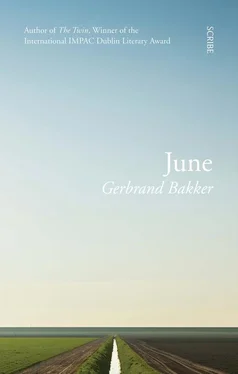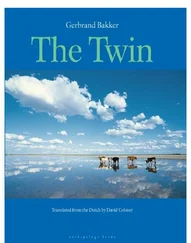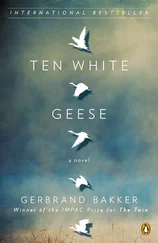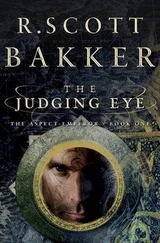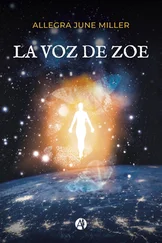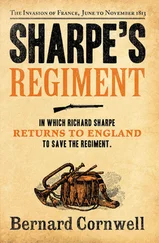‘No.’
Dieke tugs on his hand. ‘Grandpa…’
‘When did she actually go up there?’
‘Just before I left to pick you up from the train yesterday, Johan rang. He wanted to speak to her. When we got home, she was up on the straw.’
‘And now?’
‘Grandpa!’
‘Yes, Diek. Nothing.’
They walk on. It’s very quiet. Without speaking, Dieke points out two small birds perched on a low branch of the linden. Blue tits, their beaks wide open. The shells crunch underfoot. He looks at Anna’s bike, which Jan has leant against a chestnut tree. There’s the black-painted ledge that runs all around the base of the Polder House. Seven centimetres wide at most. Black varnish, that’s what it’s painted with. Just to be sure, he inspects the wall, which is painted off-white. Maybe there’s a ring somewhere his brother-in-law could have held on to. Nothing. Dieke has walked ahead to the car. He opens the door and she jumps onto the seat. ‘Oof!’ she says.
‘Wait a sec,’ he tells her. ‘I just have to…’
‘It’s boiling in here.’
‘Leave the door open. I won’t be long.’
He walks around the car and opens the door on the driver’s side as well, turns the key in the ignition and switches the radio on. He stops to listen for a moment. A reporter from Radio North-Holland has gone to the seaside: ‘ It’s chock-a-block down here, the beach restaurants are doing a roaring trade and that’s a real turnaround from last year when the summer was a complete washout. I’m now walking down the ramp… ’
‘Boring,’ says Dieke.
‘There’ll be music in a minute.’
He walks back to the black ledge, but changes his mind and carries on. Past his wife’s bike, now in the shade of the chestnuts and the gate, which he fortunately didn’t close behind him, so he can go back into the cemetery without making a sound.
He can’t see anything. His son is hidden behind the headstones. Maybe working on the h , or even the third e . The herring gulls, which he had forgotten, laugh as they take wing. Jan sits up a little to look at the birds as they glide over his head and disappear behind the hedge, tumbling over each other as they fly west. To the beach. Then the cemetery seems deserted again. He turns and walks over to the black ledge, stands with his back against the wall and steps up with one heel on the ledge. When he tries to put his other foot up there too, he immediately loses his balance. He tries it again, this time with the other foot first, and again fails. ‘Strange boy,’ he mumbles.
‘Grandpa!’
Klaas is back in the easy chair in the old cow passage. Not because he wants to take it easy, but because he can’t get his mother’s voice out of his head. He still doesn’t know if he imagined it or if she really did call him. He stares out, which means staring at a square in the distance where the sliding door was yesterday evening. Sitting on top of the white-brick wall that forms a partition in the L-shaped cow passage is another radio. In the old days you used to walk out of the cowshed to the sound of music and be greeted by the same music a bit further along. Now the only radio you hear is the old thing in his father’s garage. He turned this one on not expecting it to work, but it did… ‘ I’m now walking down the ramp and onto the beach, let’s see if anyone’s here… Could you tell me if… Wait, this is a German family, they don’t understand me of course, and if they say something in reply, you won’t understand them. Unless I translate it on the spot, but it’s much too hot for that, ha ha ha. I’ll just walk on a bit and — Ah, yes, here are two dyed-in-the-wool North Hollanders. Ladies, are you enjoying your day on the beach? ’
‘ It’s glorious, but now the sun’s gone, so we’re not going to get much browner. But we’re not going home yet! Rie and I just love swimming, so we’ll be going back in for another dip! ’
‘ You heard it, listeners, this is the place to be right now. What was your name?… Jenneke and Rie are in their element. The sun really has disappeared for the moment, so let’s switch to our weatherman, Jan Visser. Jan, can you… ’
The wooden silo starts creaking. Like an upside-down iceberg, only a small part of it is visible from here, the lower section that emerges from the attic and tapers down to form a chute you can open by sliding up a steel door. First it creaks, then something falls against the door. Then it’s quiet again, except for the drivel coming from the radio.
Have you sold the land yet? That brother of his — who spends all his time over there on Texel and never lifts a finger here, who never even shows up for the haymaking, when Johan is up on the cart before the first bale has rolled out of the baler, although it isn’t really responsible, letting him help with something like that — that brother asks if he’s sold the land yet. ‘Tsk,’ he says. He stands up and turns off the radio. Dust billows from the sheet covering the easy chair.
Why do we always try so hard to get Mum to come down? he wonders. What’s the point? In the end she always comes down of her own accord. Once she’d taken his father’s shotgun up with her and even fired it. She’d aimed at a swift, she admitted to her husband much later, and missed it of course. For some reason, his mother isn’t really fond of animals. The next day he and Jan had tied all the ladders they could find together and climbed up to replace the dozens of wrecked roof tiles. Her shoulder was bruised for weeks. Klaas can’t remember when that was, the early eighties maybe. It’s getting more and more embarrassing, especially now she’s in her seventies. Her dragging that old body up the ladder and laying it down on the hard straw; her shrill voice, muffled by a hundred years of dust.
He walks out and gives the door lying flat on the concrete another kick. There’s that dead sheep again. How did they do it in the old days? Did they just bury the dead animals in a field? He remembers one of his grandfather’s stories, about a mass grave on the edge of the farm after the anthrax epidemic of 1923. Hundreds of cow bones at the bottom of a field. He remembers so many things. He starts whistling and, like yesterday evening, walks to the causeway gate and rests his forearms on the top, badly chewed board. Two hares are sitting in the field about fifty metres away. Their ears are trembling. They’re facing each other and staring into each other’s eyes like two competing hypnotists. It’s strange. You often see a single hare or two together, but very rarely do you see a group. They ignore his whistling.
Where the wooden silo comes down through the ceiling there’s an access hatch. An open access hatch. Klaas pulls a rusty bike off a pile of rubbish and leans it against the white wall, grips the top of the wall, steps up onto the bike seat and uses the momentum to raise his hands to the bottom of the hatch. He steps up onto the wall from the bike seat, then hoists his upper body into the space, swinging his legs in the process and kicking the radio off the wall. It definitely won’t work now.
It’s gloomy; at the back of the barn there are just two small skylights. The straw is almost three metres high. He hears Dirk snort. He hasn’t got rid of the bull yet; once he has, the place will be completely dead. Not that he costs much: a few handfuls of straw, a couple of scoops of concentrate now and then, a bucket of water. There’s no ladder leaning against the straw. His mother wasn’t born yesterday. One more thing: that old body hauling up the ladder. And she’s not that clever anyway, because it’s not the only ladder. The others might not be particularly solid, but they’re not totally rickety either. One’s leaning against the old milking parlour; another, aluminium, is lying on the floor at the front of the barn, where they used to keep the hay. If he wanted, he could get up there in no time, even without a ladder.
Читать дальше
